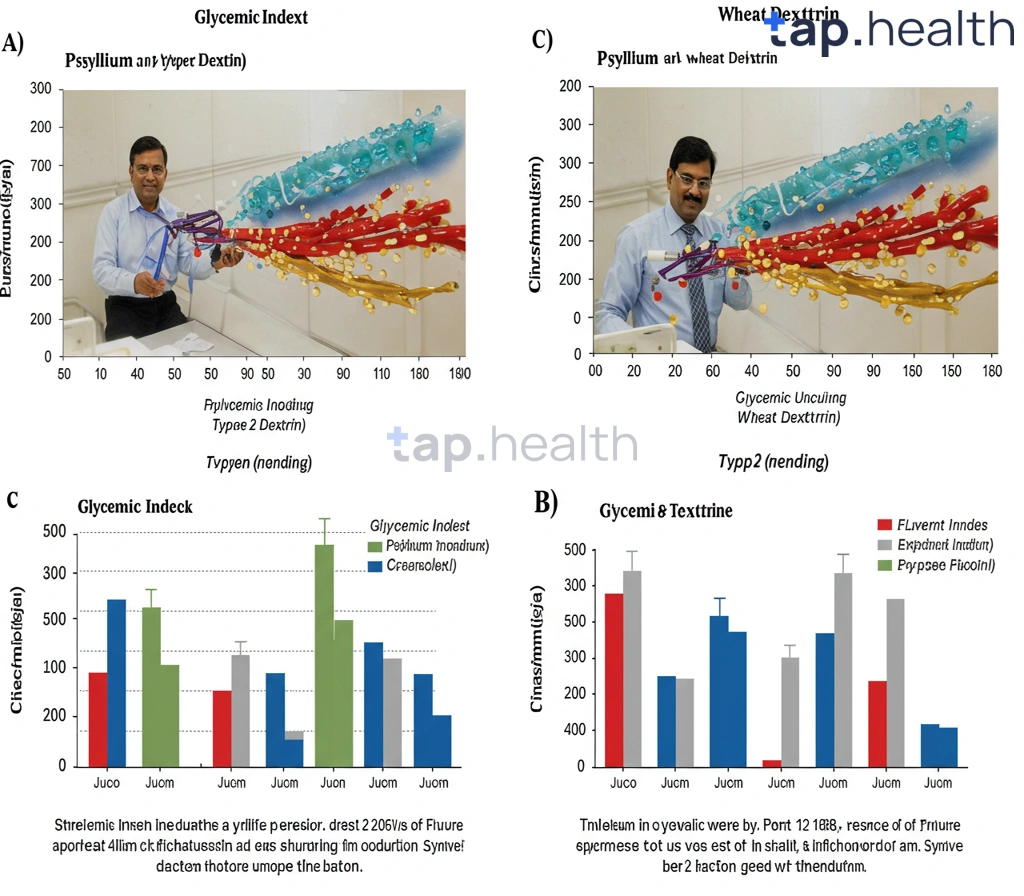Table of Contents
- Kidney Health: Diabetes Care for Transgender Individuals
- Diabetes & Kidney Disease: Unique Needs of Gender Diverse People
- Protecting Kidney Function: A Guide for Transgender People with Diabetes
- How Hormone Therapy Impacts Kidney Health in Transgender Individuals with Diabetes?
- Transgender-Specific Considerations for Diabetic Nephropathy Management
- Frequently Asked Questions
- References
Living with diabetes presents unique challenges, and for transgender and gender-diverse individuals, those challenges can take on an added layer of complexity. This is especially true when it comes to Kidney Health: Unique Considerations for Transgender & Gender Diverse Individuals with Diabetes. Hormone therapies, differing healthcare access, and sometimes overlooked health disparities can significantly impact kidney function. In this blog post, we’ll explore these specific considerations, providing vital information and resources to help you prioritize your kidney health and well-being. Let’s dive into how we can navigate these complexities together and empower you to take control of your health journey.
Kidney Health: Diabetes Care for Transgender Individuals
Diabetes significantly increases the risk of kidney disease, a serious concern for everyone, particularly within the transgender and gender-diverse community. Nearly 30% of individuals with diabetes develop diabetic nephropathy, a type of kidney damage. This risk is compounded by various factors specific to transgender individuals, highlighting the need for tailored care in Indian and tropical countries.
Hormone Therapy and Kidney Health
Hormone replacement therapy (HRT), commonly used by transgender individuals, can influence kidney function. Certain hormones may affect blood pressure and blood sugar levels, both crucial factors in kidney health. Therefore, close monitoring of these parameters is vital for transgender individuals with diabetes. Regular check-ups with nephrologists and endocrinologists are essential for personalized management and early detection of any complications.
Access to Healthcare & Cultural Considerations
Access to quality healthcare remains a significant challenge for many transgender individuals, particularly in India and other tropical countries. Cultural stigma and discrimination can create barriers to seeking timely medical care. Open communication with healthcare providers is crucial to ensure comprehensive diabetes and kidney care. This includes discussing the impact of HRT and any other relevant health concerns.
Practical Steps for Better Kidney Health
Maintaining optimal blood sugar and blood pressure levels is key to protecting kidney health. This includes following a healthy diet, regular exercise, and adhering to prescribed medication. Seeking support groups and connecting with other transgender individuals living with diabetes can significantly improve overall well-being and adherence to treatment plans. It’s crucial to advocate for better access to healthcare and create a more inclusive and supportive environment for transgender individuals. Regular check-ups, including tests for kidney function, are vital for early diagnosis and intervention. In India and other tropical countries, proactive healthcare engagement is essential for improved long-term health outcomes. For those concerned about the long-term implications of kidney disease, understanding Is Chronic Kidney Disease a Disability? can be helpful. Additionally, making informed decisions about medication is crucial, and learning about Which Diabetes Drug is Best for Diabetics with Kidney Disease? can empower patients and their healthcare providers.
Diabetes & Kidney Disease: Unique Needs of Gender Diverse People
Diabetes significantly increases the risk of kidney disease, a serious concern affecting millions globally. The World Diabetes Atlas shows that a substantial portion of those affected, 61%, are between the ages of 20-64, representing a large and active population. This data highlights the urgency of addressing kidney health across all demographics, especially within vulnerable groups.
Hormonal Influences and Kidney Health
Transgender and gender diverse individuals face unique challenges in managing diabetes and its complications, including kidney disease. Hormone replacement therapy (HRT), commonly used within this community, can impact various metabolic processes, potentially influencing kidney function. These effects are often complex and vary based on individual factors, highlighting the need for personalized care. Additionally, access to quality healthcare, including specialized diabetes and nephrology care, can be a significant barrier in many Indian and tropical countries.
Addressing Disparities in Care
Early detection and proactive management are crucial in mitigating the risks of diabetic kidney disease. Regular check-ups including blood pressure monitoring, urine testing, and blood glucose control are essential. However, cultural stigma and limited awareness surrounding transgender and gender diverse health needs can lead to delays in diagnosis and treatment in many regions, including parts of India and other tropical countries. Open communication between healthcare providers and patients is paramount to ensure appropriate care. Understanding how diabetes affects different aspects of life is key, and for many, this includes considering the impact on fertility.
Empowering the Community
Access to culturally sensitive and inclusive healthcare services is vital. Educational initiatives targeted towards transgender and gender diverse communities in India and tropical countries, focusing on diabetes prevention, early detection, and the management of kidney disease are crucial for improving health outcomes. This includes promoting regular check-ups and open conversations with healthcare professionals, addressing any concerns or anxieties related to healthcare access. Ultimately, a multi-faceted approach that includes patient education, provider training, and community outreach is necessary to address the unique kidney health needs of transgender and gender diverse individuals with diabetes in these regions. The challenges of managing diabetes can also significantly increase with age, as highlighted in our article on managing diabetes as you age.
Protecting Kidney Function: A Guide for Transgender People with Diabetes
Understanding the Unique Challenges
Diabetes significantly increases the risk of kidney disease, and this risk is further nuanced within the transgender and gender-diverse community. While research highlights that women with diabetes face a 40% higher risk of heart disease than men with diabetes, the impact of diabetes on kidney health in transgender individuals requires specific attention. Hormone therapy, often a crucial part of gender-affirming care, can interact with diabetes medications and influence kidney function. Additionally, access to quality healthcare and consistent diabetes management can be challenging for many in India and other tropical countries, compounding the risk of kidney complications. Early detection and proactive management are vital.
Prioritizing Kidney Health: Practical Steps
Maintaining optimal blood sugar levels is paramount. This involves regular monitoring, adhering to prescribed medications, and adopting a healthy diet. In India and other tropical regions, access to fresh produce and culturally appropriate dietary advice is key. Regular check-ups with a nephrologist are crucial for early detection of kidney problems. Open communication with your healthcare provider about your hormone therapy and diabetes management is essential to ensure personalized care. Remember, addressing any underlying health conditions, such as hypertension, alongside diabetes management, is vital for kidney protection. Furthermore, managing diabetes effectively is crucial not only for kidney health but also for heart health. For more information on protecting your heart, check out our article on Protect Your Heart from Diabetes: 5 Essential Steps.
Seeking Support and Resources
Navigating diabetes and gender-affirming care simultaneously can be complex. Seek support from LGBTQ+-affirming healthcare providers and community organizations. Many Indian cities and tropical regions now have dedicated support groups and healthcare professionals knowledgeable about the specific needs of transgender and gender-diverse individuals with diabetes. Proactive engagement with your healthcare team is the best way to protect your kidney health. If you’re planning any travel, it’s also important to consider how to manage your diabetes on the go. For helpful tips, see our guide on Traveling with Diabetes: Essential Tips for a Safe & Healthy Journey.
How Hormone Therapy Impacts Kidney Health in Transgender Individuals with Diabetes?
Diabetes disproportionately affects certain populations, with men exhibiting a higher prevalence (8.9%) than women (7.8%) according to the World Health Organization (WHO). This disparity adds another layer of complexity when considering the kidney health of transgender and gender-diverse individuals with diabetes, particularly in regions like India and other tropical countries. Hormone therapy, a crucial aspect of gender-affirming care, can interact with existing health conditions like diabetes, potentially impacting kidney function.
Understanding the Interactions
The impact of hormone therapy on kidney health in transgender individuals with diabetes is a relatively under-researched area, especially within the context of tropical climates and specific populations in India. However, some hormones, such as certain types of estrogen and testosterone, can affect blood sugar control and blood pressure, both crucial factors influencing kidney function. For instance, some studies suggest potential links between certain hormone regimens and increased risk of hypertension, which is a major contributor to chronic kidney disease (CKD). This is particularly important considering the high prevalence of diabetes and hypertension in many parts of India. Therefore, careful monitoring of blood sugar, blood pressure, and kidney function is crucial for transgender individuals with diabetes undergoing hormone therapy. Understanding how stress hormones affect diabetes can also provide further insight into this complex interplay.
Practical Considerations and Regional Insights
Regular check-ups with a nephrologist and endocrinologist are vital, especially in regions with limited access to specialized healthcare. These specialists can monitor kidney function through tests like eGFR (estimated glomerular filtration rate) and albuminuria, adjusting medication and hormone therapy as needed. Furthermore, lifestyle modifications – including maintaining a healthy diet, regular exercise, and managing stress – are essential for both diabetes and kidney health. Access to affordable and culturally appropriate healthcare and education is crucial in India and other tropical countries to mitigate the potential risks. Seeking culturally sensitive medical advice and support networks is key for improved management and outcomes. Managing blood sugar levels effectively is paramount, and understanding the impact of sugar on other aspects of health, such as thyroid health, can help individuals adopt a holistic approach to well-being.
Transgender-Specific Considerations for Diabetic Nephropathy Management
Managing diabetic nephropathy, a serious kidney complication of diabetes, presents unique challenges for transgender and gender-diverse individuals in India and other tropical countries. The already high prevalence of diabetes in these regions, coupled with the specific healthcare disparities faced by this community, necessitates a nuanced approach. Diabetic neuropathy, affecting 30-50% of diabetes patients and causing pain and reduced mobility, further complicates matters. This can impact adherence to treatment plans and regular check-ups, crucial for preventing kidney disease progression.
Hormone Therapy and Kidney Function
Hormone replacement therapy (HRT), commonly used within the transgender community, can influence kidney function. Certain hormones may affect blood pressure and fluid balance, factors directly linked to nephropathy development and severity. Regular monitoring of kidney function through blood tests (e.g., eGFR, creatinine) is critical for individuals on HRT. Open communication with both endocrinologists and nephrologists is essential for personalized management.
Access to Healthcare and Cultural Sensitivity
Access to specialized nephrological care can be limited, particularly in rural areas of India and other tropical countries. Cultural stigma surrounding transgender identities can also create barriers to seeking timely medical attention. Building trust and ensuring culturally sensitive healthcare interactions are crucial for improving health outcomes. This includes employing gender-affirming language and creating inclusive healthcare environments.
Lifestyle Modifications and Support
Managing diabetes effectively, including maintaining a healthy diet, regular exercise, and stress management, are paramount in preventing and managing diabetic nephropathy. However, socio-economic factors and potential discrimination can hinder the adoption of these lifestyle changes. Providing targeted support programs and community-based resources can empower transgender and gender-diverse individuals to prioritize their kidney health. These programs should consider the unique challenges and needs of this population within the specific cultural contexts of the Indian subcontinent and other tropical regions. Making informed choices about Safe and Effective Dietary Supplements for Diabetes Care is also crucial. Furthermore, understanding the legal and social implications of diabetes can be helpful; consider reading more about Is Diabetes Considered a Disability? Understanding the Implications.
Frequently Asked Questions
Q1. How does diabetes affect kidney health, particularly for transgender individuals?
Diabetes significantly increases the risk of kidney disease in everyone. For transgender individuals, this risk is heightened due to factors such as hormone replacement therapy (HRT) impacting blood pressure and blood sugar, and potential barriers to consistent healthcare access.
Q2. What role does hormone replacement therapy (HRT) play in kidney health for transgender people with diabetes?
HRT can influence blood pressure and blood sugar levels, both critical factors in kidney health. Careful monitoring by a nephrologist and endocrinologist is crucial to manage these effects and minimize kidney damage.
Q3. What are the biggest challenges faced by transgender individuals with diabetes in managing kidney health?
Challenges include navigating healthcare systems, facing potential cultural stigma and discrimination, and sometimes lacking access to quality and affirming care, especially in certain regions like India and tropical countries.
Q4. What steps can transgender individuals with diabetes take to protect their kidneys?
Maintaining optimal blood sugar and blood pressure levels through diet, exercise, and medication adherence is key. Open communication with healthcare providers and seeking support from LGBTQ+-affirming resources are also essential.
Q5. Where can I find more information and support regarding my kidney health as a transgender individual with diabetes?
Connecting with LGBTQ+-affirming healthcare providers and support groups is vital. Organizations dedicated to transgender health and diabetes care can offer additional resources and guidance.
References
- A Practical Guide to Integrated Type 2 Diabetes Care: https://www.hse.ie/eng/services/list/2/primarycare/east-coast-diabetes-service/management-of-type-2-diabetes/diabetes-and-pregnancy/icgp-guide-to-integrated-type-2.pdf
- Diabetes in Older Adults: A Consensus Report: https://en.iacld.com/UpFiles/Documents/292529019.pdf




